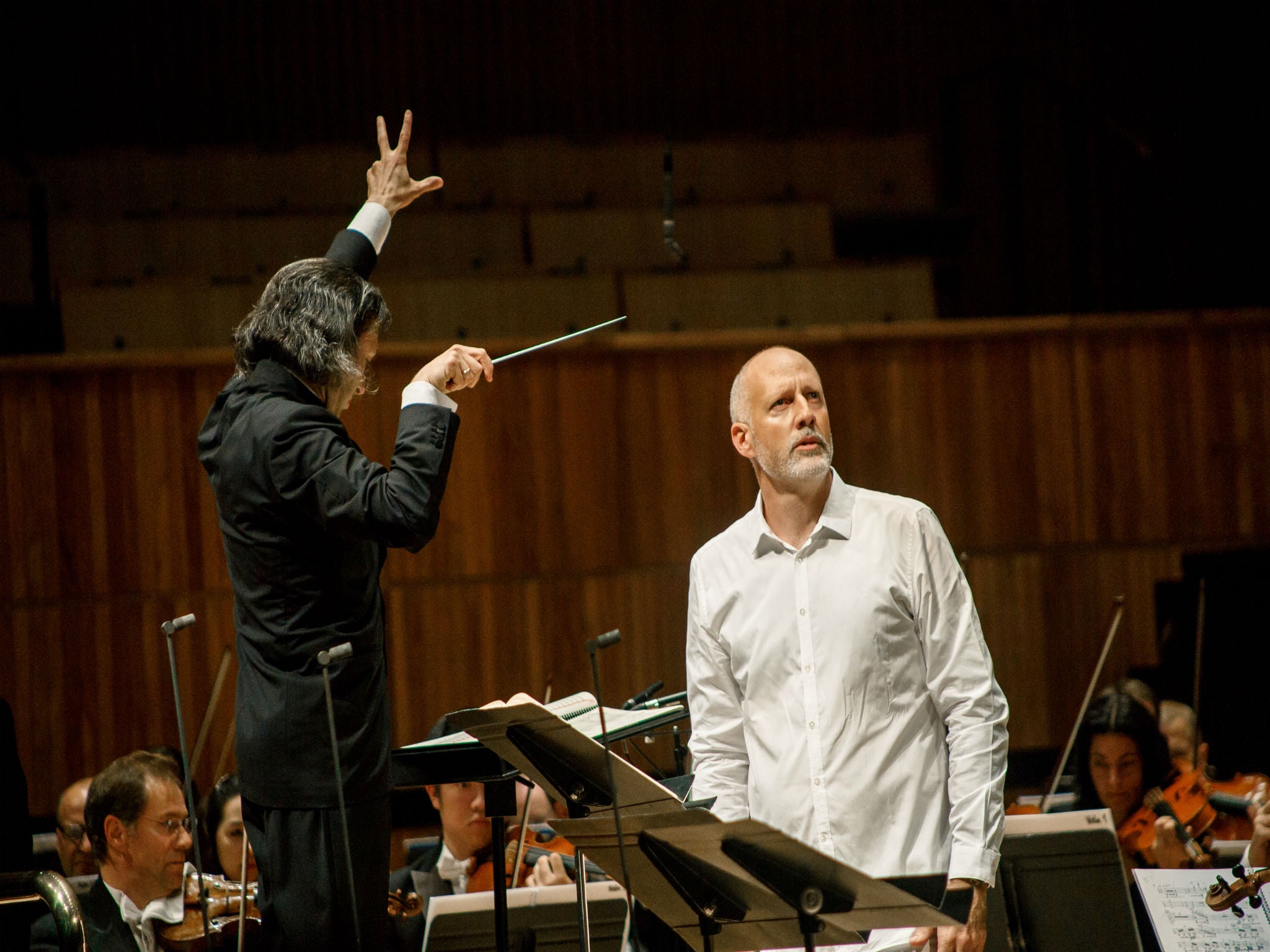Oedipe, Royal Festival Hall, London: George Enescu’s opera has a bewildering impact
Vladimir Jurowski conducts an orchestra of 100 in this ambitious concert-hall staging

Your support helps us to tell the story
From reproductive rights to climate change to Big Tech, The Independent is on the ground when the story is developing. Whether it's investigating the financials of Elon Musk's pro-Trump PAC or producing our latest documentary, 'The A Word', which shines a light on the American women fighting for reproductive rights, we know how important it is to parse out the facts from the messaging.
At such a critical moment in US history, we need reporters on the ground. Your donation allows us to keep sending journalists to speak to both sides of the story.
The Independent is trusted by Americans across the entire political spectrum. And unlike many other quality news outlets, we choose not to lock Americans out of our reporting and analysis with paywalls. We believe quality journalism should be available to everyone, paid for by those who can afford it.
Your support makes all the difference.An orchestra of 100, two choruses, a staggering 14 soloists and no fewer than three Sophocles plays go into the making of George Enescu’s opera Oedipe. No wonder it took Romania’s national composer 20 years to complete. Logistics (both physical and financial) keep the work out of the regular repertoire but that only adds to the bewildering impact of the piece when it does occasionally make it to the stage.
In this case it was a concert-hall stage but since most of Oedipe’s drama is in its many-layered score – patricide, incest and civil unrest dissolved down into brusque bass clarinets and contrabassoons, wheedling saxophone and a lustrous oil-slick of strings – the loss was negligible.
Vladimir Jurowski and the London Philharmonic Orchestra were joined for their opening concert of the season by two Romanian choirs as well as a starry team of soloists. The magnificent Ildiko Komlosi’s scene-stealing Sphinx (unnecessarily amplified), Willard White’s bluff, craggy Tiresias, Graham Clark’s characterful Shepherd and Gabriela Istoc’s chastely lovely Antigone were all glittering flecks in the musical fabric but it was Paul Gay in the title role who held focus – tireless through the relentless demands of Act IV.
Jurowski kept his huge forces afloat through the score’s stormier moments, though there was far too much physical faff and stage business among the soloists for the meditative sections of Enescu’s opera-oratorio to move beyond fidgeting and come into focus. Given the luxury of an opera house’s rehearsal time, this would have been a five-star smash to match the Royal Opera’s recent production.
Join our commenting forum
Join thought-provoking conversations, follow other Independent readers and see their replies
Comments